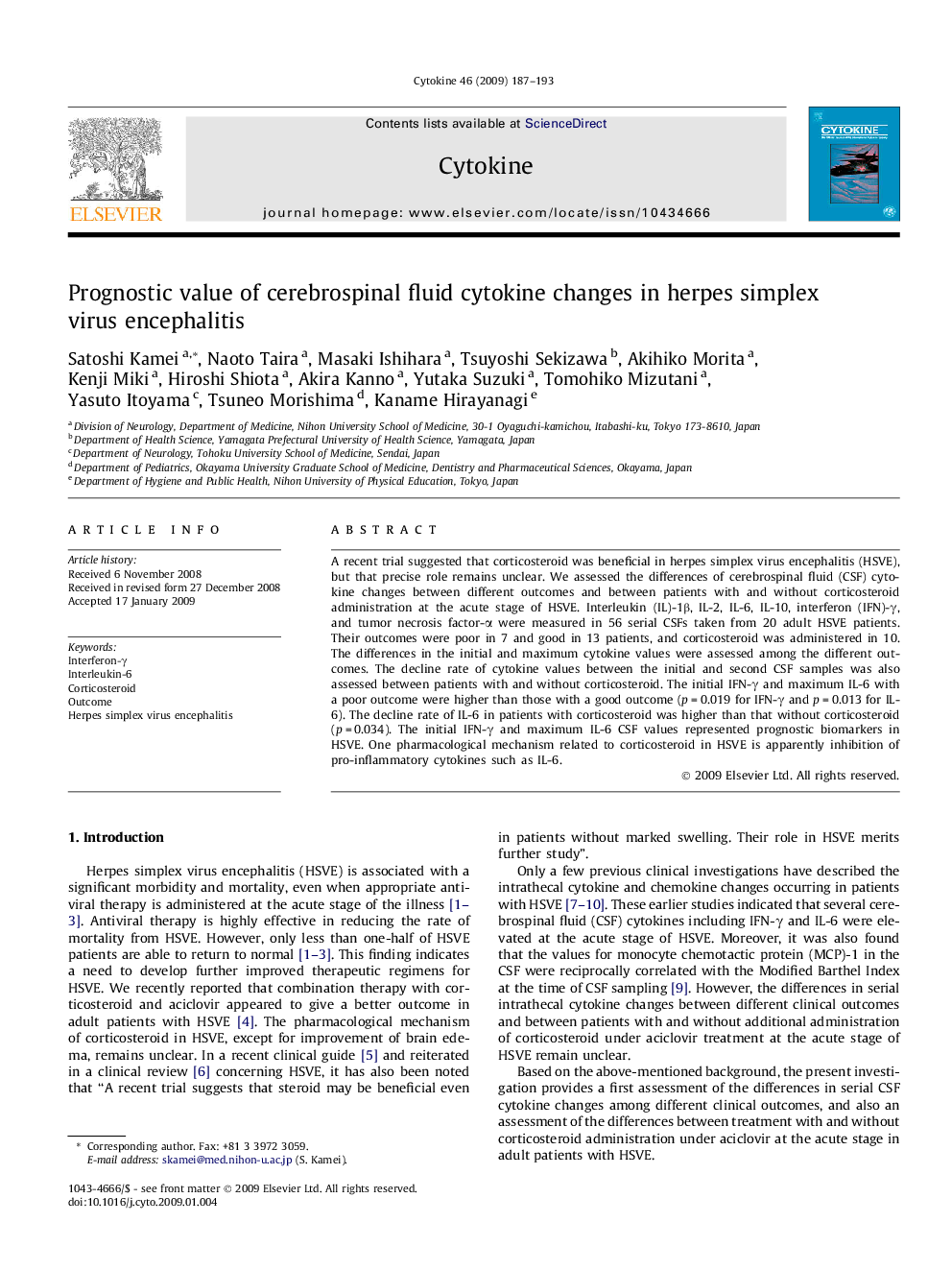| Article ID | Journal | Published Year | Pages | File Type |
|---|---|---|---|---|
| 2795520 | Cytokine | 2009 | 7 Pages |
A recent trial suggested that corticosteroid was beneficial in herpes simplex virus encephalitis (HSVE), but that precise role remains unclear. We assessed the differences of cerebrospinal fluid (CSF) cytokine changes between different outcomes and between patients with and without corticosteroid administration at the acute stage of HSVE. Interleukin (IL)-1β, IL-2, IL-6, IL-10, interferon (IFN)-γ, and tumor necrosis factor-α were measured in 56 serial CSFs taken from 20 adult HSVE patients. Their outcomes were poor in 7 and good in 13 patients, and corticosteroid was administered in 10. The differences in the initial and maximum cytokine values were assessed among the different outcomes. The decline rate of cytokine values between the initial and second CSF samples was also assessed between patients with and without corticosteroid. The initial IFN-γ and maximum IL-6 with a poor outcome were higher than those with a good outcome (p = 0.019 for IFN-γ and p = 0.013 for IL-6). The decline rate of IL-6 in patients with corticosteroid was higher than that without corticosteroid (p = 0.034). The initial IFN-γ and maximum IL-6 CSF values represented prognostic biomarkers in HSVE. One pharmacological mechanism related to corticosteroid in HSVE is apparently inhibition of pro-inflammatory cytokines such as IL-6.
